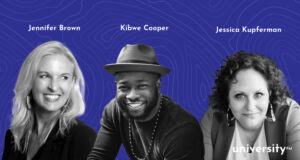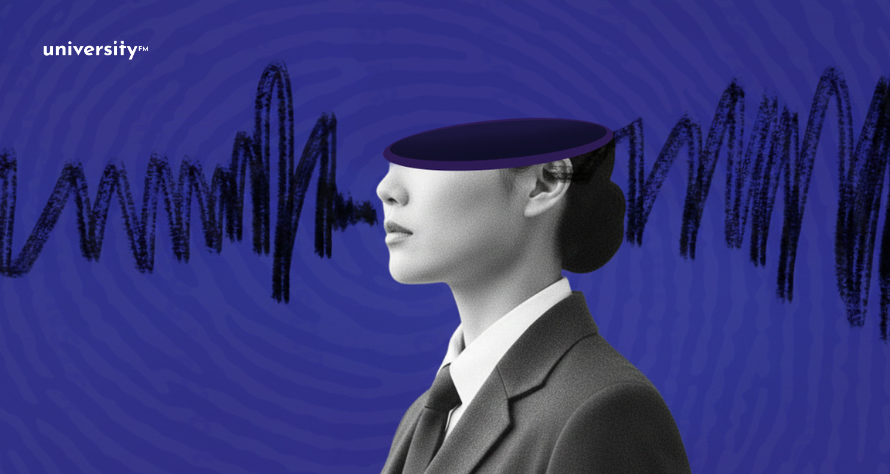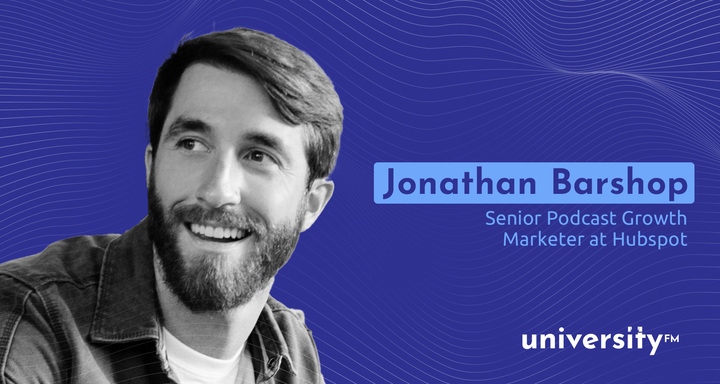
Diversity and inclusion within the podcasting world takes on many forms. Podcasters can focus on a series of topics centering around the theme of diversity and inclusion within their content, feature guests from diverse backgrounds on their episodes, or share their platform with co-hosts from different backgrounds.
Regardless of the approach, thoughtful podcasters aim to provide insight into different experiences and perspectives.
To learn more about diversity and inclusion in podcasting, we spoke with Kibwe Cooper, podcast producer at Colorado Public Radio and host of the EmpowerYou Podcast, Jessica Kupferman, co-founder and CEO of She Podcasts, and Jennifer Brown, founder and CEO of Jennifer Brown Consulting and host of The Will to Change Podcast.
Diversity can mean different things to different people. For Cooper, diversity is about more than merely identity descriptors such as race, gender, class and sexuality.
“Diversity is also about different vantage points and experiences, perspectives, and even execution styles,” he explains. “When you’re in a diverse environment, you’re going to have people who understand how to reach the desired result from a variety of different angles.”
Brown, best-selling author of 2022’s How to be an Inclusive Leader, believes that concepts of diversity, equity and inclusion are integrally connected with the way that organizations, institutions and workplaces function.
“Organizations have a huge opportunity to define what the practice of diversity can actually look like,” Brown says. “Our institutions should anticipate the demographic changes that are happening in our world and represent those changes and diversity in leadership.”
The podcast medium in particular presents a unique opportunity to represent minority demographics and underprivileged communities. Kupferman feels that diversity in podcasting should aim to be representative of different experiences.
“Diversity to me means learning from and hearing from as many different perspectives as possible. Especially when it comes to podcasting,” she says. “It means making sure that you don’t hire the same speakers every time making sure that you don’t ask questions of the same people every time.”
Kupferman adds that it’s also okay to serve a specific community. Her company, She Podcasts, primarily centers around supporting underrepresented and marginalized voices of women and non-binary creators. The free group of 21,000 people serves as a safe space for these underrepresented voices to support each other.
Podcast hosts in particular play a vital role in creating a space where diversity of experience and perspectives can be heard. “You’re able to create atmospheres for people to be themselves in a way that they may not normally get to because you have the time and you have the attention of your listener,” Cooper says.
When interviewing guests from different backgrounds, hosts face the unique challenge of balancing their own expertise with the expertise of their guests. Brown says that for hosts, there’s a constant tension between being an expert and having a lot to learn.
Brown adds that whether they choose to invite guests that they disagree with or guests that share common goals, hosts have to remain aware of their own limitations.
“You need to check yourself and be really honest about when you can speak with authority and where you just want to have a conversation so that you can learn something,” she says.
The importance of learning when to put aside your own expertise also stands out for Cooper. His EmpowerYou Podcast aims to provide mentorship through conversation by offering a collection of experiences from influential experts across fields.
He says that podcast hosts need to become more comfortable with not being the expert.
“I think people are very afraid that they’re going to be too challenged by other people’s opinions or experiences,” he says. “So they tend to create these very one-sided narratives that could be damaging and horribly non-inclusive,” he explains.
Kupferman says that learning more about someone before interacting with them on a podcast can put hosts in a better headspace to have tough conversations.
Getting to know people on a personal level and asking about their family or their morning can remind hosts that they have things in common with people that they might not understand or may share disagreements with.
“It will help remind you that they’re not like an alien from another planet who has come to take over the universe,” she says.
Ultimately, when podcasters create content, they should think keenly about the needs of their audiences and the stories that are underexplored.
Curiosity acts as a remedy for stepping down from the expert role and meeting the needs of audiences. Brown notes that letting curiosity lead can be helpful in terms of generating an authentic and informative conversation with people from different backgrounds.
“Let yourself be guided by your curiosity. There are plenty of identities that aren’t given visibility, that aren’t widely understood, and it’s a host’s job to elucidate those, to bring them to light,” Brown says.
In addition to curiosity, podcasters should treat guests with sensitivity and care. Kupferman believes that at the core, podcasters are journalists. Their job is to tell a story and highlight individuals and groups.
“There’s a responsibility to do things in a way that doesn’t hurt other people, whether it’s your guests, your listeners or both,” she says.




